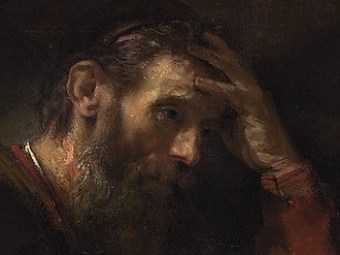I was diagnosed with Epilepsy when I was 5th grade, and have been taking anti-seizure drugs ever since. I continue to experience the peaks and valleys of having a chronic medical condition. Medication that works as a teenager may not work as an adult.
Or it may cause side effects.
When I was 18 years old, God began to push me in exciting new directions. I dove headfirst into church life, and I found myself waking up at night and reading Scripture and praying. One night I read the following passage from Paul:
“I was given a thorn in my body because of the outstanding revelations I’ve received so that I wouldn’t be conceited. It’s a messenger from Satan sent to torment me so that I wouldn’t be conceited. I pleaded with the Lord three times for it to leave me alone. He said to me, “My grace is enough for you, because power is made perfect in weakness.” (2 Corinthians 12:7-9)
Whenever my epilepsy raises its ugly head, I remember this passage, because some historians have suggested that Paul may have had epilepsy. (Acts 9:3-9; Galatians 4: 13-14). I’m not certain that Paul had epilepsy, but even the suggestion helps me remember 2 Corinthians 12. Paul knew what it was like to have a chronic medical condition. It didn’t stop him from traveling the Roman Empire and planting churches, but it was severe enough for him to plead with God to take it away. Some days I think I know how he felt. I don’t have seizures of the “fall down and convulse” variety. I do have simple partials and sometimes even complex partials. They don’t keep me from functioning as a pastor, but they are serious enough that I wish to God they didn’t happen. And yet they sometimes do. Until the day I am completely seizure free, I must remember God’s promises to the afflicted. This applies to all of us who suffer from a chronic illness:
““My grace is enough for you, because power is made perfect in weakness.”



Phenomenal post! I needed to be reminded of this! I pray you are still well on your way to a full and complete recovery with the results you have been praying for. Thanks for sharing!
Lonnie and I have both been praying daily that you experience relief from symptoms. We just want you to be our pastor.